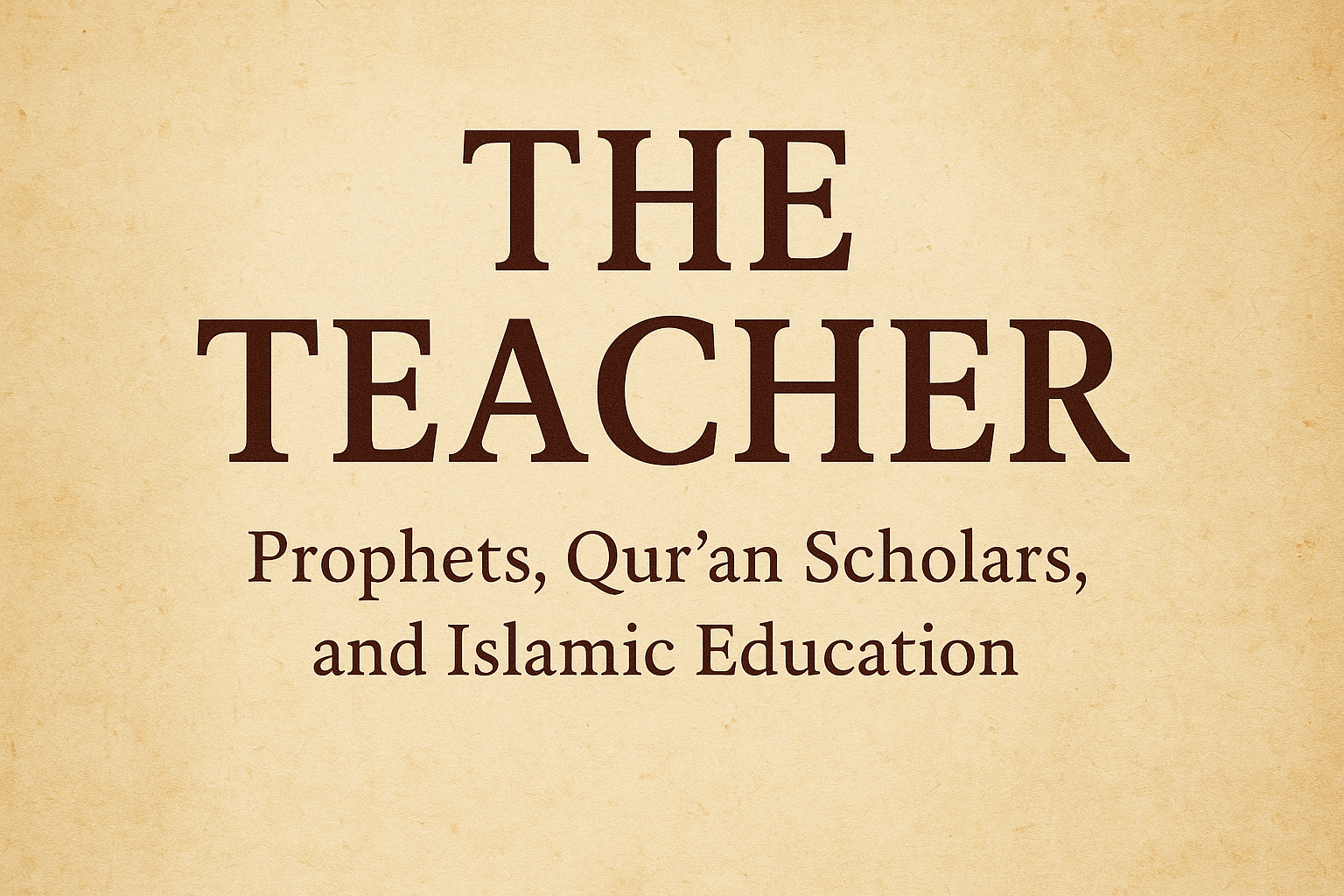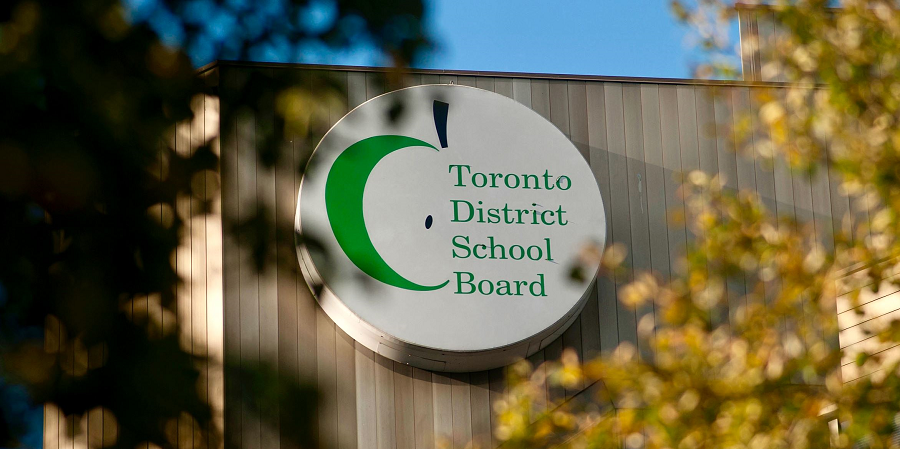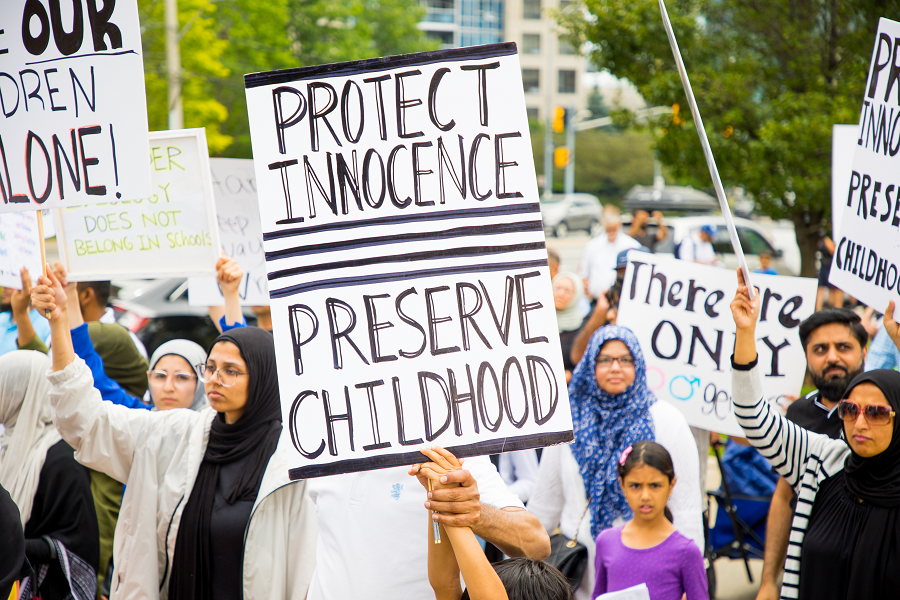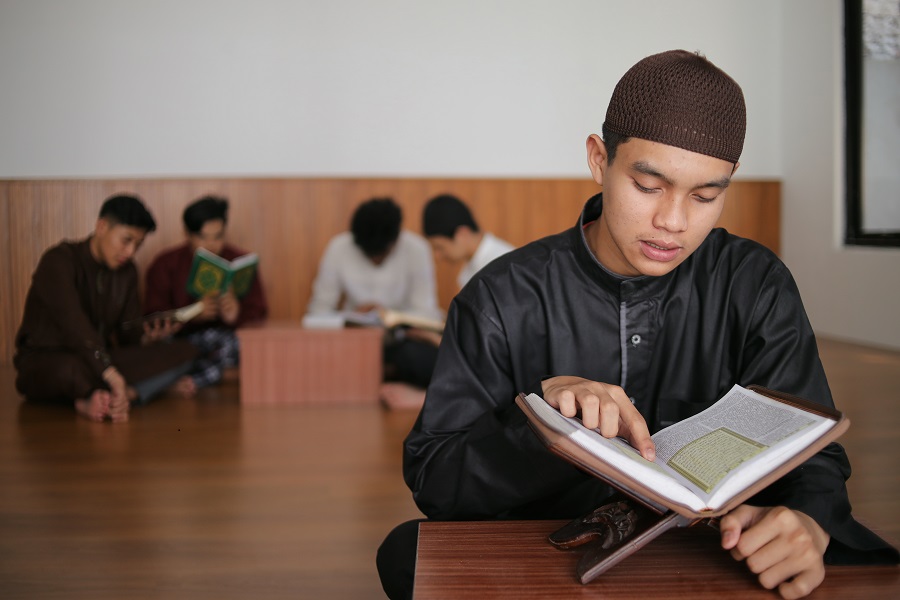By Jawed Anwar
[The following article is the first article from the series of columns written on the intellectual history and Muslim education system of India and Madrasahs, originally published in Muslims Weekly, New York, USA, in the weekly column 'Personal Notes' in 2004 and after that posted several times on different websites. This series is the new edition, extensively reviewed version. These articles are the guidelines to those who are trying to revive the Islamic/Muslim education in the modern world.]
“Our Lord, give us good in this world and good in the Hereafter, and save us from the punishment of Fire” [Al-Baqrah (2):201*].
From this supplication of Quran, we should be clear from the beginning the only education system is valid that brings goodness (Hasnaat) in this life and hereafter both. This should be the key purpose and objective of the Muslim education system.
The second thing is the education system should be in hundred percent in compliance of our purpose of life. What is the purpose of life:
I did not create the Jinns and the human beings except for the purpose that they should worship (obey) Me. [Quran Surah Adh-Dhariat (51): 56]
This means our Creator and Sustainer wish to see His noble creation (human beings) obey Him in the same fashion as all His other creations are programmed to obey Him.
“All living creatures and all angels in the heavens and on the earth are in prostration before Allah; and never do they behave in arrogant defiance. They hold their Lord, Who is above them, in fear, and do as they are bidden” [Quran: An-Nahl (16): 49-50]
So, the purpose of education to make a person guided and obedient of Allah. And the role model is the Messenger of Allah, Muhammad ﷺ.
“There is indeed an excellent model for you in the Messenger of Allah” [Surah Al-Ahzab (33): 21].
“And you are surely on an excellent standard of character” [Surah Al Qalam (68): 4].
The Prophet Muhammad ﷺ said, “I have been sent as a prophet to teach the attributes of the utmost best character.” [Al-Adab Al-Mufrad by Imam Bukhari, Hadith 273, Muwatta Imam Malik, Book 47 (Good Character), Hadith 8]
Therefore, the main purpose of Muslim education system is to instill unequivocally the “best character” in the students.
Humankind serves as Allah’s viceroy on Earth: “And when thy Lord said unto the angels: “Lo! I am about to place a viceroy in the earth” [Al-Qur’an (2):30]. For a viceroy to govern effectively, they must be well-educated, knowledgeable, and possess wisdom. The Qur’an emphasizes the importance of education for all. The first human, Adam (peace be upon him), was created with knowledge and wisdom, elevating humanity above angels:
“And He taught Adam the names of all things; then He placed them before the angels, and said: ‘Tell me the names of these if ye are right’” [Al-Qur’an (2):31].
This verse highlights not only the spiritual path of Islam but also the pursuit of knowledge, including physical sciences. Allah also granted technological knowledge, as seen in the case of Prophet David: “We made iron mouldable for him, instructing: ‘Make full-length armor, perfectly balancing the links. And work righteousness’” [Al-Qur’an (34):10-11).
The first verse revealed to Prophet Muhammad (peace be upon him) begins: “Read in the name of your Lord Who created” [Al-Qur’an (96):1).
The primary goal of Islamic education is to cultivate exemplary character in all individuals. The Qur’an further describes the mission of a messenger: “Our Lord! Raise up in them a Messenger from among them who shall recite to them Thy communications and teach them the Book and the wisdom, and purify them” [Al-Qur’an (2) :129].
Those with the best character, as believers, aim to “(Allah will certainly help) those who, were We to bestow authority on them in the land, will establish Prayers, render Zakah, enjoin good, and forbid evil. The end of all matters rests with Allah.” [Al-Qur’an (22):41].
Seeking knowledge is a fundamental obligation for Muslims, reinforced by numerous ahadith (sayings of Prophet Muhammad ﷺ). In Islam, education is not merely a social requirement but a spiritual and psychological necessity for every individual.
While Westernism views education as a means to material gain and material development, Islam regards it as essential to existence and a source of dignity.
The Qur’an establishes Adam’s superiority over angels due to his knowledge. Prophet Muhammad (peace be upon him) and his followers pioneered an educational movement, establishing an obligatory education system for the first time in history.
To spread Allah’s message, Islam relied on public speaking, social advocacy (waaz), and counsel (nasihah). This led to the development of a formal educational system to produce knowledgeable and wise individuals.
The first Madrasah, Darul Arqam, was established by the Prophet ﷺ in Makkah during the early days of Islam, amidst severe persecution of Muslims. After the establishment of Islam in Madinah, the Suffah educational institution was founded, with the Prophet as the teacher and his companions (sahabah), including Muhajireen (migrants) and Ansar (locals), as students.
Following the Battle of Badr, the Prophet declared that any educated prisoner of war who taught ten Muslims to read and write would be freed. This unique exchange—releasing captives in return for educating others—marks a significant milestone in human history.
During the caliphate of Umar Farooq (b. 584, d.644), may Allah be pleased with him), an educator was appointed alongside a governor and judge in every conquered territory. Umar ؓensured that students received both formal (syllabus) and informal (non-syllabus) education, and he ؓdeployed trainers to foster moral character in society.
While the Umayyad period (661-750) saw weaker educational policies and declination, Caliph Umar Bin Abdul Aziz (680 – February 720) revitalized them, stating, “Allah sent Prophet Muhammad ﷺ not as a tax collector, but as a guide for the people.”
The Islamic education system is universal, transcending ethnic, racial, national, or communal boundaries. It is founded on three principles: • Unity of the Creator. • Unity of creation (humanity). • Accountability on the Day of Judgment.
These principles elevate Islamic education beyond communities, nations, and time, transforming learning into an act of worship. In this system, classrooms become spaces where students and teachers engage in spiritual devotion.
Unlike Western education systems focused on professional or material gains only, Islamic education prioritizes moral and spiritual growth. This approach fosters an environment of peace, love, respect, brotherhood, sisterhood, harmony, kindness, generosity, self-control, open-mindedness, and acceptance of truth.
By aiming for success in both this world and the hereafter, Islamic education eliminates hatred, selfishness, disrespect, and bigotry, promoting peace, love, and respect.
*All translations of the Quranic texts are from Dr. Mustafa Khattab's The Clear Quran, available at Quran.com.
E: jawed@seerahwest.com
JOIN
AsSeerah What's App Channel Follow: AsSeerah Facebook Page AsSeerah X Be the Writer’s Friend https://www.facebook.com/JawedAnwarPage/








Comments
Faisal
Precisely explained a very important point. Jazak'Allah